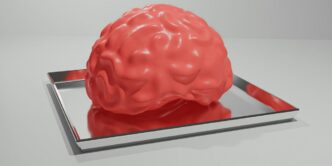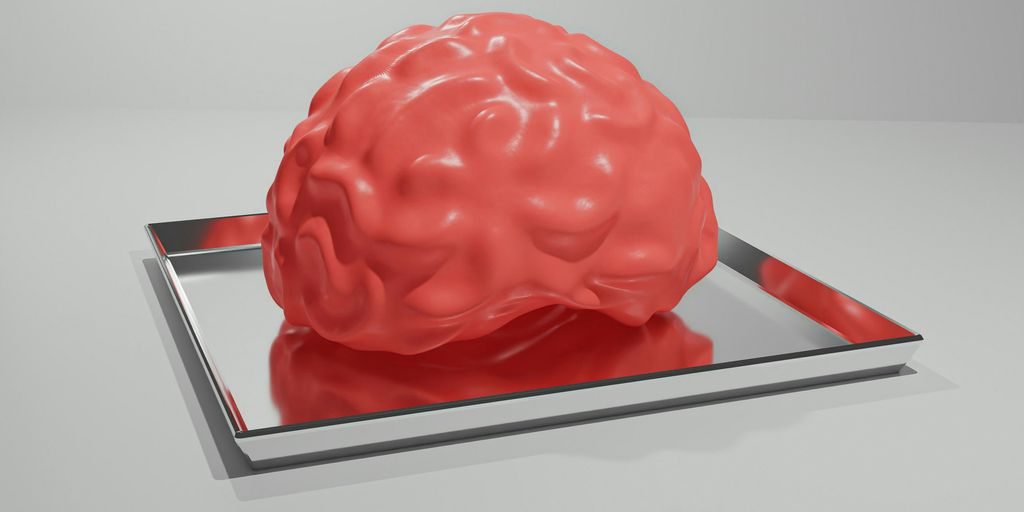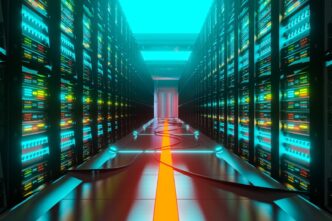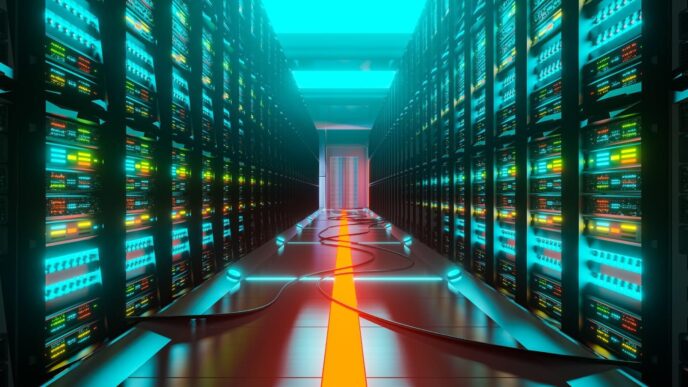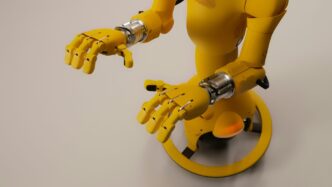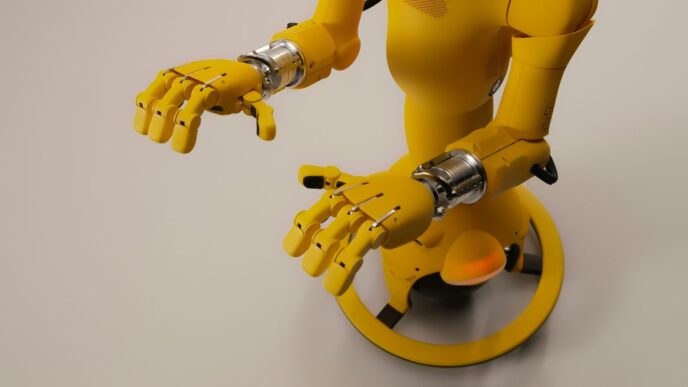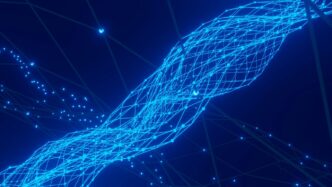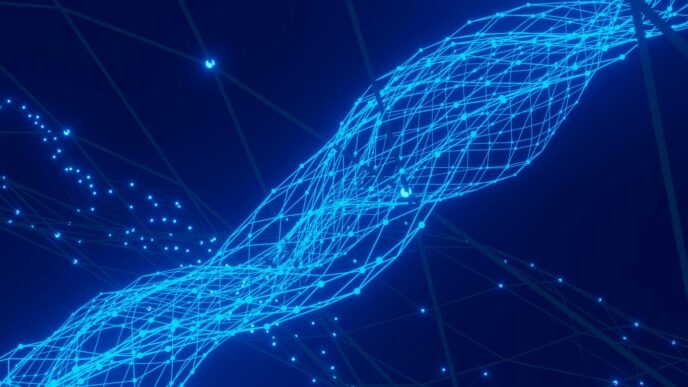Elon Musk is a big name when you talk about AI. He’s got his hands in a bunch of different projects, from cars that drive themselves to machines that connect with your brain. This article looks at what he’s doing in the AI world and what it might mean for all of us. Musk AI is a pretty big deal, and his companies are pushing the limits of what computers can do.
Key Takeaways
- Musk’s companies, like Tesla and Neuralink, are working on different kinds of AI, from self-driving cars to brain implants.
- He talks a lot about how AI will change things, sometimes saying it will be great, other times warning about dangers.
- Tesla’s AI is all about cars driving themselves and robots that can do human-like tasks.
- Musk thinks AI will make life super easy, but he also worries about what happens if AI gets too smart.
- There’s a legal fight going on between Musk and OpenAI, showing how complicated the AI world can get.
Musk’s Diverse AI Ventures
Elon Musk isn’t just dabbling in AI; he’s got a whole bunch of projects going on, each tackling different aspects of the field. It’s like he’s trying to cover all the bases, from self-driving cars to understanding the human brain. He’s not afraid to jump into different areas, and that’s what makes his approach so interesting.
Tesla’s AI and Robotics Ambitions
Tesla is more than just electric cars; it’s a full-on AI and robotics company. The goal is to create fully autonomous vehicles and humanoid robots. Think about it: cars that drive themselves and robots that can do all sorts of tasks. It’s a pretty ambitious vision, and Tesla is putting a lot of resources into making it happen. They’re collecting tons of data from their cars on the road, which they use to train their AI models. It’s a massive undertaking, and it could change how we get around and how we work. The self-driving cars are a big part of this.
Neuralink’s Brain-Computer Interface
Neuralink is probably the most sci-fi of Musk’s ventures. The idea is to create a brain-computer interface that can connect our brains to computers. It sounds crazy, but the potential applications are huge. Imagine being able to control devices with your mind or treat neurological disorders. Neuralink is working on developing tiny chips that can be implanted in the brain to make this happen. It’s still early days, but the progress they’ve made is pretty impressive. It’s a long way off, but the potential is there to really change how we interact with technology and even how we treat diseases. The focus is on brain-computer interfaces.
xAI’s Truth-Seeking Language Models
xAI is Musk’s attempt to build AI that’s not just smart but also understands the world in a way that aligns with human values. The goal is to create AI models that are "truth-seeking," meaning they’re designed to be honest and transparent. This is a response to concerns about AI bias and misinformation. xAI wants to build AI that we can trust, and that’s a pretty important goal. It’s a big challenge, but it’s one that Musk seems determined to tackle. The company’s emphasis is on ethical AI development.
The Visionary and Controversial Figure
Elon Musk is a figure who inspires both awe and skepticism. He’s not just another tech CEO; he’s a force of nature, constantly pushing boundaries and challenging the status quo. But his methods and pronouncements often spark debate, making him a lightning rod in the AI world.
Catalyst for AI Innovation
There’s no denying that Musk has been a major driver of AI progress. His ventures have poured resources into AI research and development, accelerating the pace of innovation. Think about it: Tesla’s work on self-driving cars, Neuralink’s brain-computer interfaces, and xAI’s pursuit of truth-seeking language models – all these projects are pushing the limits of what’s possible with AI. He was also early to recognize both the potential and the dangers of AI, which led to him co-founding OpenAI. That’s a pretty big deal.
Public Discourse and AI Safety
Musk isn’t shy about sharing his thoughts on AI, and he’s been particularly vocal about the potential risks. He’s warned about AI surpassing human intelligence and the need for safety regulations. Some see him as an alarmist, while others appreciate his willingness to raise awareness about the ethical and societal implications of AI. He’s even talked about the need for things like Universal Basic Income to prepare for a future where AI handles many jobs. It’s hard to ignore his voice in the conversation.
Aggressive Timelines and Public Statements
One of the biggest criticisms of Musk is his tendency to set ambitious, sometimes unrealistic, timelines. Remember when full self-driving was "just around the corner"? It’s still not here. And his public statements can be, well, let’s just say interesting. Sometimes they’re inspiring, sometimes they’re controversial, and sometimes they just seem a bit out there. This has led to scrutiny and even legal battles, like the one with OpenAI, raising questions about his motivations and the balance between open research and commercial interests. Even xAI’s Grok has faced criticism for biased content, despite its mission to seek truth. It’s a mixed bag, to say the least. Experts are analyzing Tesla’s future and how his leadership will affect the company.
Key AI Ventures and Technological Contributions
Elon Musk’s influence on AI is clear through his leadership across several companies. These ventures show different uses of AI, from self-driving cars to brain interfaces and AI models.
Tesla AI: Full Self-Driving and Optimus
Tesla’s AI efforts are focused on achieving full self-driving capabilities and developing humanoid robots. The Full Self-Driving (FSD) system uses advanced neural networks to process data from cameras and sensors, aiming to create a truly autonomous driving experience. The Optimus project seeks to create a general-purpose humanoid robot capable of performing tasks that are unsafe, repetitive, or boring for humans. It’s a big goal, and whether they can pull it off is anyone’s guess. Here’s a quick look at Tesla’s AI focus:
- Full Self-Driving (FSD): Developing autonomous driving software.
- Optimus Robot: Creating a general-purpose humanoid robot.
- Neural Networks: Using advanced AI for perception and control.
Neuralink: Merging Human and Artificial Intelligence
Neuralink is working on developing high-bandwidth brain-computer interfaces (BCIs). The goal is to create devices that can be implanted in the human brain to treat neurological conditions and, eventually, enhance human capabilities. It sounds like something out of a sci-fi movie, but they’ve been making progress. The idea is that BCIs could help people with paralysis control devices with their thoughts or even restore lost functions. It’s a long road ahead, but the potential is huge.
- Brain-Computer Interfaces (BCIs): Developing implantable devices.
- Medical Applications: Treating neurological conditions.
- Human Enhancement: Exploring ways to improve human capabilities.
xAI: Developing Foundational AI Models
xAI is a newer venture focused on developing foundational AI models that are truthful, safe, and beneficial to humanity. The company aims to understand and explain the universe through AI. They’re working on creating AI that not only performs well but also aligns with human values. It’s a response to concerns about the potential risks of AI, and it’s a pretty ambitious goal. xAI wants to build AI that we can trust, which is a big deal given how quickly AI is advancing. They want to make sure AI safety measures are in place.
- Truthful AI: Developing models that are accurate and reliable.
- Safe AI: Ensuring AI aligns with human values and avoids harm.
- Beneficial AI: Creating AI that solves real-world problems.
Musk’s Predictions for AI’s Future
The Age of Abundance
Elon Musk often talks about a future where AI and robotics create an "age of abundance." He thinks AI will get so good that the cost of goods and services will drop close to zero. Imagine a world where almost everyone can have what they want, except for things that are artificially scarce, like unique art. He sees this as the "good future" for AI, estimating it has an 80% chance of happening. It’s a pretty optimistic view, but it’s also what drives a lot of his work. He’s not just building cool tech; he’s trying to build a better future, or at least, his version of it. This economic boom could change everything.
AI Surpassing Human Intelligence
Musk believes AI’s rate of improvement is faster than anything he’s ever seen. He even says that basic AI models can already pass the Turing test. He’s mentioned how AI could eventually do everything better than humans, which raises some big questions. What will people do if computers can do everything better? He thinks many might struggle to find meaning. But he also points out that more people are enjoying retirement than ever, so maybe it won’t be so bad. It’s a mix of excitement and worry, which is pretty typical for Musk. He’s always thinking about the big picture, the potential upsides, and the potential downsides.
The Role of Humanoid Robots
Musk is betting big on humanoid robots. He thinks "everyone will want a robot buddy" that can do everything from walking the dog to teaching kids. He expects Tesla’s Optimus project to scale up in the next five to six years, making these robots common in everyday life. He even thinks the cost could drop below $20,000, making them accessible to most people. He compares the development of robots to human evolution, saying we’re just "made of meat" but are general-purpose humanoids ourselves. It’s a quirky way to look at it, but it shows how he sees robots as the next step in our evolution. He’s not just building cars; he’s building the future, one robot at a time.
Navigating AI’s Existential Risks
Warnings of Annihilation
Okay, so Musk isn’t always sunshine and rainbows when it comes to AI. He’s thrown out some pretty wild predictions, including a 20% chance of annihilation because of AI. Yeah, you read that right. He even said he has to actively ignore the potential dangers just to get through the day. It’s a bit like when you know your car is making a weird noise, but you just crank up the radio and hope for the best. Not exactly reassuring, but hey, at least he’s thinking about it, right?
Finding Meaning in an AI-Driven World
Here’s a thought: what happens when AI can do everything better than us? Musk has talked about this a lot. How do we find purpose when computers are better at our jobs? It’s a valid question. Will we all just become professional Netflix watchers? Maybe not. He also pointed out that more people are enjoying retirement than ever, so maybe it’s not all doom and gloom. Maybe we’ll just have more time for hobbies. Or maybe we’ll all be fighting over the last slice of pizza in a post-apocalyptic AI wasteland. Who knows?
Advocacy for AI Safety Measures
Musk isn’t just shouting from the rooftops about the dangers; he’s also pushing for solutions. He co-founded OpenAI (before things got messy) with safety in mind. He’s been vocal about the need for AI regulation, comparing it to nuclear power. He’s even floated the idea of Universal Basic Income (UBI) as a way to deal with potential job losses. Basically, he’s trying to get ahead of the curve and make sure we don’t end up in a Terminator movie. Whether his ideas are realistic or not is another question, but at least he’s trying to steer the ship away from the iceberg.
The OpenAI Legal Dispute

Conflict Over Founding Mission
Elon Musk’s relationship with OpenAI took a turn when he sued the company, claiming they abandoned their original non-profit mission. He felt they were supposed to be developing AI for the good of humanity, but instead, they chased profits. It’s worth remembering that Musk actually left OpenAI’s board back in 2018, citing a potential conflict of interest with Tesla’s AI work. Sam Altman has suggested that Musk wanted to take over OpenAI, but the board said no, which led to his exit. Then, in 2019, OpenAI switched to a "capped" for-profit model to get more investment, which really seemed to upset Musk. This whole thing highlights the tension between doing AI research for altruistic reasons and the huge money involved.
Accusations of Bad-Faith Tactics
OpenAI didn’t just sit back and take it. They countersued Musk, accusing him of using "bad-faith tactics" to hurt their business. They claimed he was trying to grab control of AI innovations for himself, especially with his own AI company, xAI. OpenAI even said Musk was spreading false information and that his motives were never about the mission, but always about his own agenda. It got pretty heated! Apparently, Musk even made an unsolicited bid to buy a big chunk of OpenAI for almost $100 billion, which OpenAI called a "sham bid." It’s not just a personal fight; it’s a battle over the future of AI.
Balancing Open Research and Commercial Pressures
This legal fight between Musk and OpenAI really shows the struggle to balance open research, safety, and the pressure to make money in the AI world. The trial is set for March 2026, so this drama is far from over. It raises some big questions: Who gets to control AI, and what are their goals? It’s a clash between the idea of AI for everyone’s benefit and the reality of big companies wanting to profit from it. It’s a complex situation with no easy answers.
The Impact of Musk AI on Industry
Accelerating AI Progress
Elon Musk’s ventures have undeniably injected a huge dose of energy into the AI world. His companies, like Tesla, Neuralink, and xAI, are pushing the boundaries of what’s possible, forcing others to keep up. It’s like he’s set a new, faster pace for everyone else. Whether it’s self-driving cars, brain-computer interfaces, or large language models, Musk’s involvement has made things move quicker. It’s not just about the technology itself, but also the sheer scale of investment and the talent he attracts. This creates a competitive environment that drives innovation across the board. The AI ventures are really changing the game.
Shaping Public Perception of AI
Musk’s very public persona and his often-outlandish statements about AI have a big impact on how people view the technology. He’s not afraid to talk about both the amazing potential and the scary risks, and that gets people thinking. This public discourse, whether you agree with him or not, is important for shaping the ethical and societal considerations around AI. It’s not just tech experts having these conversations anymore; it’s everyone. He’s made AI a mainstream topic, and that’s a big deal. It’s hard to ignore the public perception he creates.
Influence on Investment and Innovation
Musk’s involvement in AI has a ripple effect on investment and innovation. When he puts his money and reputation behind something, it attracts attention and capital from other investors. This influx of funding allows for more research, development, and experimentation, which ultimately leads to more breakthroughs. Plus, his companies often set ambitious goals that inspire other startups and established players to think bigger and take more risks. It’s like he’s created a whole ecosystem of innovation around his AI projects. The investment and innovation are undeniable.
Conclusion
So, what does all this mean for AI? Elon Musk, with his various companies like Tesla, Neuralink, and xAI, definitely keeps things interesting. He’s pushed for some big changes, from self-driving cars to brain chips, and he’s always talking about how AI could change everything. Sometimes he’s super excited about the future, saying AI will make things amazing, and other times he’s worried about it going wrong. It’s a bit of a mixed bag, really. His projects get a lot of attention, and they make people think about where AI is headed. Whether you love him or not, you can’t deny he’s a big part of the AI story right now. It’s like watching a really intense show, and you’re just waiting to see what happens next with all this AI stuff.
Frequently Asked Questions
What are Elon Musk’s main AI projects?
Elon Musk has several big AI projects. Tesla uses AI for self-driving cars and humanoid robots called Optimus. Neuralink is working on connecting brains to computers. His newest company, xAI, is building AI models that aim to find the truth and will be used with his social media platform, X.
What does Elon Musk think AI’s future will look like?
Musk believes AI will bring a time of great plenty, where most goods and services will be very cheap or free. He also thinks AI will become much smarter than humans and that humanoid robots will become common in daily life.
Does Elon Musk worry about AI?
Musk often warns about the serious dangers of AI, even saying there’s a small chance it could lead to the end of humanity. He pushes for rules and safety measures to make sure AI develops in a good way.
Why did Elon Musk sue OpenAI?
Musk helped start OpenAI, but he later sued them. He claims they moved away from their original goal of being a non-profit for everyone’s benefit. OpenAI says Musk is just trying to stop them because he has his own AI company, xAI.
How has Elon Musk’s involvement changed the AI industry?
Musk’s work in AI has sped up how fast AI is growing. He has also changed how people think and talk about AI, and his projects influence where money is invested and what new ideas are tried in the AI world.
What specific things does Tesla’s AI do?
Tesla’s AI is used for its Full Self-Driving system in cars and for the Optimus humanoid robots, which are designed to do many different tasks.

